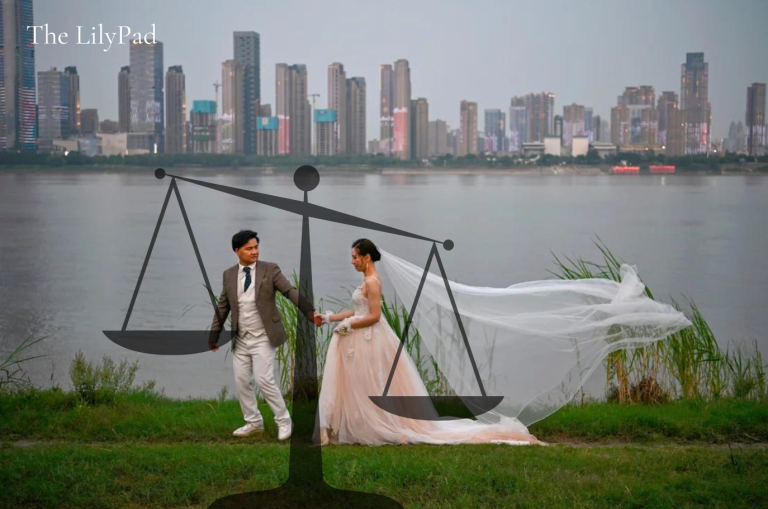Since starting university, I’ve been asked many times by people from my parents’ and grandparents’ generations if any of my friends are engaged or married. Those questions always shocked me, and my answer that most of my friends were not even in relationships would always shock them back. In my social sphere, most people my age are starting to see marriage and having a family as an inconvenience to themselves and the rest of the world rather than a life goal or a blessing.
Still, one’s opinion on marriage seems to vary between individuals, regardless of cultural background. The argument in favor of marriage usually sounds something like this: “true love is still a real thing, and humans have been falling in love and getting married for centuries. Even when love can hurt, pain is a necessary experience that helps shape the way people form relationships (romantic or platonic) with others. I don’t think that just because something is unpleasant it should be avoided. I think people tend to learn and grow even more from unpleasant experiences because those are the ones we tend to remember more vividly, since we don’t want to risk repeating our mistakes.”
Alternatively, I have heard the spiel about how marriage is essential in long-term relationships in order to protect vulnerable parties in the relationship. Often, this means women and children in the case of separation. Could a state treating married and unmarried couples to equal benefits could open up possibilities for exploitation within relationships? Usually, it is only after marriage that issues like financial security and the rights to children are defined and protected by the state.
In a marriage-free society, people with ill intentions could easily get into relationships for the purpose of financial security or cohabitation because they would not have to get married for their rights to some portion of their partner’s assets to be protected. One could argue that the requirement of joining the marriage institution is a fair ask from the state in return for the added security blanket given to couples.
But I still have not been convinced. I can’t say that it is a fair ask from the state for people to get married in order to access these benefits. This makes it easier for the state to enforce discrimination against certain populations by not allowing them to get married, thus denying them its legal benefits.
There is a growing idea that if not all people are allowed to get married (usually in reference to homosexual, polyamorous or “interracial” marriages being a contested topic around the globe) then no one’s marriage is truly safe. This sentiment can be used to echo the idea that the state’s power to choose who has the right to get married and access the legal benefits of that marriage needs to be limited to some extent, because if not, it can lead to stricter and stricter regulations that infringe more and more on the rights of its citizens.
There is also a growing number of objections to the symbolism of marriage. Traditionally, marriage acted as a way of handing off a woman from one man, her father, to another, her husband. Today, as women have access to more education and work opportunities, this image’s connotation is more demeaning than romantic. Around most of the world, marriage is also still followed by the expectation of having children. Bell Hooks wrote in Ain’t I a Woman, “the structure of marriage in a patriarchal society is based on a system of exchange, one in which men are traditionally taught to provide economically for women and children in exchange for sexual, housekeeping and nurturing services”. This has presented another issue for women as the ‘equal’ education and work opportunities have not yet reached an equitable agreement that considers the very different set of needs for women expected to both have children and keep a job.
Around the world, many are becoming fed up with what it truly means to be married, which might reflect the unfairness of the institution of marriage. The legal benefits to married couples are no longer outweighing the burdens put on married couples, especially women. Marriage and fertility rates are falling globally, while divorce rates are on the rise.
Ancient Greek philosopher Epicurus argued that romantic relationships fail more often than not, and put us through suffering that is unnecessary and avoidable. He thought we should forget about romantic relationships and instead pursue stronger friendships. Perhaps he was centuries ahead of the curve in predicting that many young adults of the 21st century would jump straight from growing up in a rapidly expanding population to rejecting marriage altogether.

